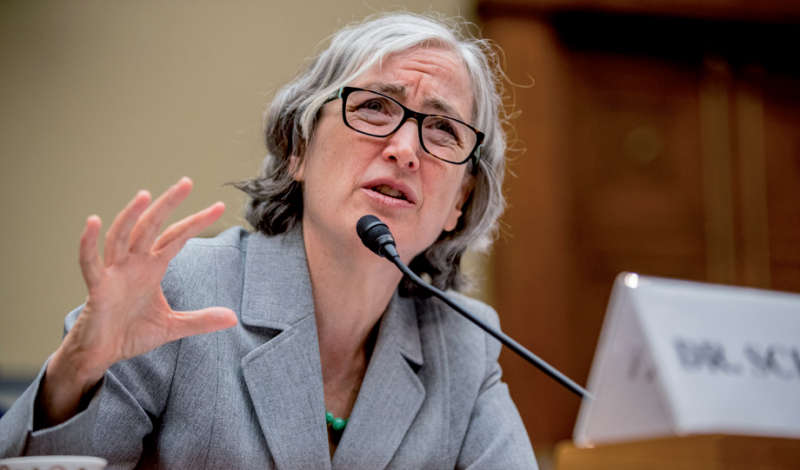The number of vaping-related illnesses in the US could soon climb by the "hundreds'', a top official of the Centers for Disease Control and Prevention Centers (CDC) told Congress on Tuesday.

CDC Principal Deputy Secretary Anne Schuchat speaks before a House Oversight subcommittee hearing on lung disease and e-cigarettes on Capitol Hill in Washington on Tuesday. (Photo: Agencies)
Dr Anne Schuchat, the CDC's principal deputy director, told a congressional subcommittee that health officials are seeing "more and more cases" every day and that she believes "hundreds more" lung illnesses have been reported since last week, when the CDC put the tally at 530 confirmed and probable cases.
Kansas officials confirmed the state's second vaping death on Monday, raising the total of US vaping fatalities to nine.
Health officials have linked the illness to vaping, though they are still trying to identify the exact cause.
Schuchat told the House Oversight and Reform Committee's panel on consumer products at an emergency hearing on the outbreak that e-cigarette market leader Juul Lab Inc uses salts in its vaping devices that she said could be particularly dangerous for teenagers.
She said doctors believe the salts allow nicotine to "cross the blood brain barrier and lead to potentially more effect on the developing brain in adolescents".
Juul executives have said that its nicotine salt gives users an experience similar to conventional cigarettes, which the company says helps smokers quit.
But the CDC said it is concerned about the effects of nicotine salts on the developing brains of young people. Those effects include difficulty with memory, learning and attention, Schuchat said. Nicotine addiction can also prime the body to become addicted to other substances, which is "of particular concern", she said.
Juul is preparing to restructure its staff, as the e-cigarette maker braces for slower sales because of vaping-related illnesses and a proposed US ban on flavors that make up more than 80 percent of its sales, The Wall Street Journal reported Tuesday.


